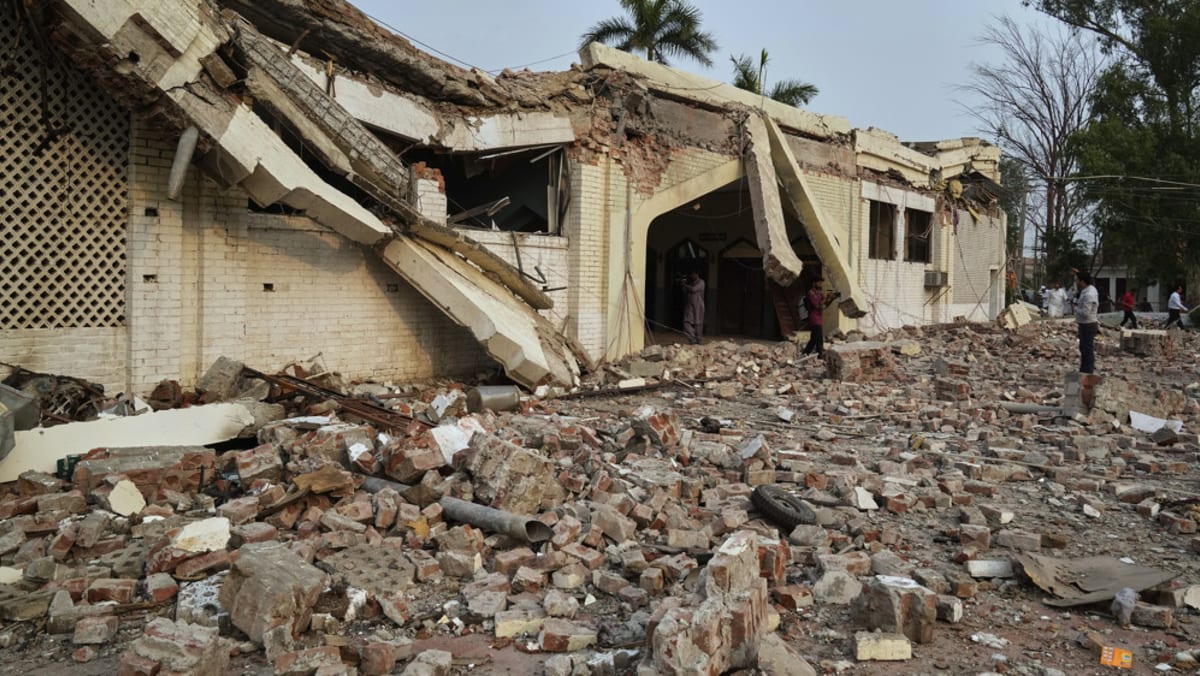Escalating Tensions: India and Pakistan Exchange Heavy Fire Following Missile Strikes










2025-05-07T13:35:18Z

NEW DELHI: In a dramatic escalation of hostilities, India and Pakistan engaged in heavy artillery exchanges along their contentious border on Wednesday, May 7. This recent outbreak of violence marks the most severe confrontation between the two nuclear-armed nations in the past twenty years. The situation intensified after New Delhi initiated missile strikes targeting what it described as terrorist infrastructure linked to a recent attack on Indian tourists in Kashmir.
According to reports, at least 38 individuals have lost their lives as a result of these military actions. The Pakistani government reported that 26 civilians were killed due to the Indian airstrikes and subsequent shelling, while Indian sources claimed that 12 of their citizens died from retaliatory Pakistani fire.
In a statement, India asserted that it had effectively targeted nine sites connected to terrorist activities, some directly associated with the tragic incident that claimed the lives of 26 Hindu tourists a month earlier. Indian officials emphasized that these military operations were “focused, measured, and non-escalatory in nature,” despite the evident escalation in military violence.
Notably, these strikes included targets within Punjab, marking a significant development as this region is Pakistan's most populous province and has not been subjected to Indian military action since the last major conflict between the two nations over fifty years ago. Such actions have stoked fears of an escalating conflict in a region already considered one of the most volatile on the planet.
In response, Pakistan's Defence Minister, Khawaja Muhammad Asif, accused Indian Prime Minister Narendra Modi of conducting these strikes primarily to bolster his domestic standing amidst rising tensions. Asif warned that Pakistan would not take long to retaliate, promising to respond “at a time, place, and manner of our choosing” in order to avenge the loss of innocent lives and defend its sovereignty.
Additionally, military spokesman Ahmed Sharif Chaudhry claimed that five Indian fighter jets had been downed during the engagements, although this assertion was not corroborated by Indian sources. Reports from local government officials in Indian-administered Kashmir indicated that three fighter jets had crashed under mysterious circumstances across various regions during the night, leading to the hospitalization of their pilots. However, the Indian Defense Ministry has yet to confirm these incidents.
In the midst of this escalating conflict, the Indian embassy in Beijing dismissed the claims regarding downed jets as “disinformation,” attempting to mitigate the international narrative surrounding the conflict. Meanwhile, in Muzaffarabad, the main city in Pakistan-administered Kashmir, military forces cordoned off streets near a mosque that Pakistan alleged was targeted in Indian strikes, with visible blast marks apparent on the walls of several surrounding homes.
Adding to the tensions, Pakistan reported that an essential hydropower facility in its part of Kashmir was also struck by Indian forces, resulting in damage to its dam structure. India had previously warned that any interference with the rivers flowing into Pakistan would be considered an “act of war,” further complicating the situation.
This latest round of violence surpasses India’s airstrikes in 2019, which followed a suicide bombing that killed 40 Indian security personnel. The backdrop to the current military actions is the April 22 attack on tourists in Indian-administered Kashmir, which New Delhi attributed to the Pakistan-based militant group Lashkar-e-Taiba, designated as a terrorist organization by the United Nations.
In the wake of these events, Indian officials have maintained that Islamabad bears responsibility for the attack, leading to a series of escalating threats and reciprocal diplomatic measures. Pakistan has firmly rejected these accusations, calling for an independent investigation into the allegations.
Following the airstrikes, the Indian Prime Minister Modi convened a comprehensive Cabinet meeting to brief members on the operations executed overnight. India's Home Ministry, tasked with overseeing internal security, has called for all paramilitary forces to return from leave and to be prepared for further developments.
 Erik Nilsson
Erik Nilsson
Source of the news: CNA